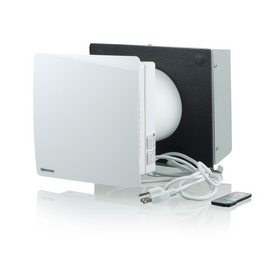
Why Home Energy Expenses Should be Reported to Home Buyers
Last Updated: Feb 9, 2025Cotty Lowry has been selling houses for 38 years. He's a real estate agent specializing in homes in the Lakes district of Minneapolis and currently works for Keller Williams Realty. In a recent wide-ranging and enlightening discussion in his office at the beautiful Uptown Keller Williams, we spoke about his goals for documenting home energy consumption in the real estate market's dominant home listing service, the Multiple Listing Service (MLS). For those unfamiliar with the MLS, it is the primary database used to buy and sell homes. But it is not for homeowners; access is limited to licensed agents and brokers who pay for membership.
Table of Contents
- Nagging Questions
- Not as Simple as it Sounds
- What it Would Accomplish
- What You Can Do, as a Homebuyer or Seller

Nagging Questions
In the course of his career, Lowry became aware of "questions [he] couldn't answer," he says, e.g., a seller asking what value it adds to their home if they install top of the line, energy-efficient windows, or better insulation, or a high-efficiency boiler. There is presently no way to quantify the value of such improvements, says Lowry, in simple MLS notation. "MLS now has some 'green' fields," he says," but they are spread throughout the listing." What he wanted was a way to bring greater awareness to buyers and the idea of higher value by a seller around the concept of optimal home energy efficiency.
Lowry's research brought him to work being done by the Rocky Mountain Institute (RMI) to formulate an "MPG for Homes." Just as a miles-per-gallon (MPG) rating for an automobile is a vital efficiency metric, homes need an equivalent metric. According to the RMI.org website, MPG for Homes is beginning to change how the real estate industry functions, as well as the way people think about purchasing and renting houses. Homeowners want an energy-efficient home, but they don't have an idea of knowing how a house performs. MPG for Homes works to increase the availability of energy information for all homes in the United States. They want to put that information where people are already looking to learn about their homes, and that place is online real estate portals.
When a buyer starts working with an agent, says Lowry, there are four significant expenses for the home buyer to consider: PITI statistics—principal, interest, taxes, and insurance. They're always discussed. But according to both Lowry and the Rocky Mountain Institute, energy costs are also a significant potential expense and are one of the biggest expenses of owning a home. The typical U.S. family spends $2,060 on average per year for home utility bills, referencing the U.S Department of Energy. Lowry is suggesting that, right along with commonly computed PITI expenses, MLS could list a home's yearly expenses for energy use, including electricity, gas, and water. Another way to help consumers currently being considered by the City of Minneapolis is to add an energy score rating to its existing Truth in Sale of Housing Report (TIH Report). This is a city-mandated housing inspection performed by licensed TIH evaluators and filed online. The report is needed for the sale of any single-family house, duplex, townhouse, or first-time condo conversion).
Not as Simple as it Sounds
There are a few reasons that achieving this addition to the Truth In Housing report is not quite as easy as it sounds. Lowry is the immediate past president of the Minneapolis Area Association of Realtors, aka MAAR. Lowry says one of the reasons is that MAAR (with some exceptions, Lowry being one) is not in favor of such a change. Many Realtors see the insertion of yet another layer of mandatory reporting as an impediment to sales. Others in Minneapolis cite the TIH Report as sufficient documentation of a home's energy liability. Lowry does not agree. Such inspections, he suggests, are not designed to reveal the home-energy use statistics he'd like to see.
Another concern about specifying average utility bills for a home listed in MLS is that there is a subjective quality to these numbers, says Lowry. One family may keep their home cooler in summer and warmer in winter than others. Another family may have seven members showering daily; another, two. Universal, home-to-home comparable energy usage scales would be more useful to consumers.
Lowry says that yet another obstacle to an MLS's listing including a home's utility costs is the limited public access to energy data from utility companies. "Utilities need to be more transparent," says Lowry. Even with present barriers to access, however, Lowry says, "there are algorithms out there producing energy scores already." House-to-house comparable scores of all types are in much higher use in Europe than the USA, says Lowry. In Great Britain, he says, energy audits are mandatory, and home sellers must reveal their current costs for light, heat and hot water. He describes how Sunday paper ads in Stockholm often include a precise, large-font number: the kWh (kilowatt-hours)/square meter/year of the home. "That's a way of judging one house to the other," says Lowry. This ought to be done in the United States. He adds that throughout Sweden, government agencies require utility companies to make public all home energy information in a uniform computer format.
What it Would Accomplish
The changes can't happen soon enough, says Lowry. The next big group of homebuyers, i.e., Millennials, are particularly interested in energy use and conservation. He suggests that the State of Minnesota require information about how much energy a home uses to be included in a seller's property disclosure statement. This is a document in which sellers are required to reveal various problems that could affect the property's value or desirability. Having this information on MLS would be even better, he says. Appraisers could create a database of information. They could then apply that information to energy-related home improvements, and make assessments of how those improvements impact a home's value. This would help assign real sales-value to improvements like new windows, better insulation, and more energy-efficient water boilers. But lacking that database, Lowry says, unfortunately, "washing the windows of a house for sale may add more value" than any of these more energy-responsible measures.
One significant breakthrough in advancing energy efficiency information and transparency in home listings across the US is the platform called Realty Sage, which uses a Sage Score to provide an apples-to-apples comparison of homes. The Sage Score considers hundreds of features in a home and its surrounding community under 8 categories: energy; water; systems/appliances; interior finishes; construction; community/outdoors; technology; and utility information.
What You Can Do, as a Homebuyer or Seller
In the current absence of an adequate database, and without home energy expenditures listed in the MLS, what can a buyer or seller do to advance the cause of transparency about home energy costs?
Work with an experienced and knowledgeable real estate agent who has gone the extra mile and received additional education and/or has worked with in energy efficient homes and certifications. Realty Sage Pros is one of the largest databases of eco-friendly real estate professionals. You simply share what your real estate needs are and they help match you with up to 3 knowledgeable and experienced agents in your area without any fees or contracts.
Also, buyers and sellers can become aware of their utility expenses, year over year. Through personal record-keeping, they could see how these costs compare to their principal, interest, taxes, and insurance expenses. Sellers can offer this information even without it being standard in the MLS and insist it is made available to all potential buyers. For their part, buyers in the market for a home can make a point of asking the Realtor for the home's energy use expenses. If more sellers provide such information and more buyers ask for it, perhaps change will come more quickly.
And don't be afraid to try to influence the Realtor population towards some of the goals Cotty Lowry has for the business as a whole. Why wouldn't we want to know the home's energy expenses? They can be as high as the PITI figures. Buyer/seller dissatisfaction with the status quo might get the ball rolling in the direction Lowry proposes.
Donna Pols Trump
Donna Pols Trump’s work has been published in literary magazines and online. She has received several Pushcart Prize nominations. Donna’s education includes degrees in Biology and Physical Therapy and a host of writing classes taken and taught at The Loft Literary Center in Minneapolis. Her short story “Portage” was selected by judge Anne Tyler for first prize in a 2018 contest sponsored by december magazine.










